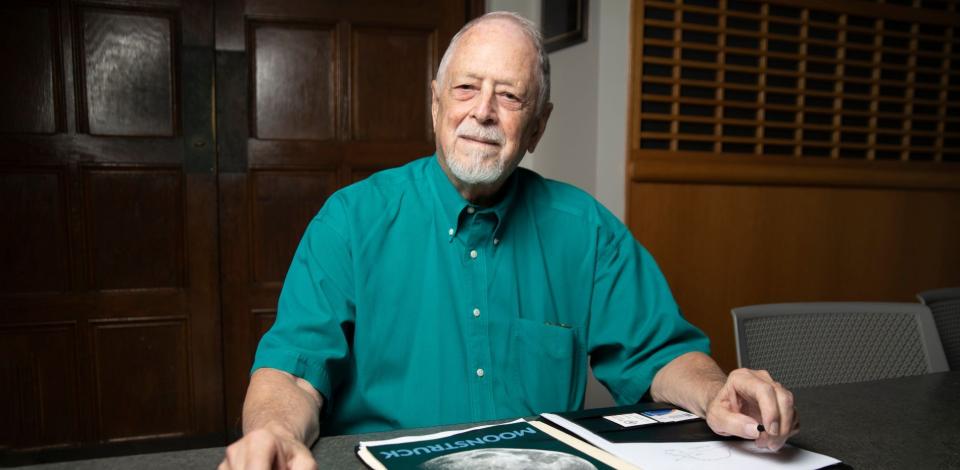Space, STEM, and Saturn V: The Journey from Earth to the Moon
Online Master's of Science in Analytics student remembers his role in historic Apollo moon landing

Half a century ago Neil Armstrong, Buzz Aldrin, and Michael Collins –with the help of thousands of NASA engineers, scientists, and mission controllers –pulled off a moon landing that remains history's greatest adventure.
Bob Macdonald was completing his master's degree in nuclear engineering at Georgia Tech when plans for the historic moon landing was announced.
“I thought what a great thing to do,” Macdonald remembered. “It wouldn’t be easy but we knew the physics and we knew the math. We just didn’t have the equipment to do it. That’s where the engineers came in.”
As a new graduate, Macdonald was employed at Rocketdyne, a design and production company focused on the Apollo spacecraft engines, to help build the J-2 rocket engine. After initial testing proved successful, Macdonald left Rocketdyne for sister company Atomics International to work on a nuclear reactor to power space stations before finally returning to Atlanta to earn his doctorate in nuclear engineering.
“It’s a real sense of satisfaction to have been able to do something like that,” he said. “You go to school; they train you to be able to take what you learn, apply it and have it work. It is immensely satisfying when things go as planned. I felt lucky to play a part.”
Although Macdonald retired two years ago, he recently became the oldest graduate student at Georgia Tech when he enrolled in the Online Master of Science in Analytics program.
To read more about Macdonald's extensive career in nuclear engineering and his contributions to history, view the full article on AJC.com.

